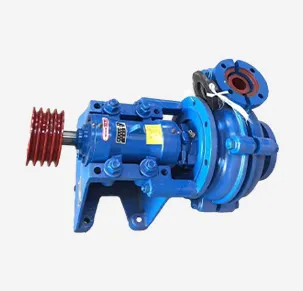Armenian
- Afrikaans
- Albanian
- Amharic
- Arabic
- Armenian
- Azerbaijani
- Basque
- Belarusian
- Bengali
- Bosnian
- Bulgarian
- Catalan
- Cebuano
- Corsican
- Croatian
- Czech
- Danish
- Dutch
- English
- Esperanto
- Estonian
- Finnish
- French
- Frisian
- Galician
- Georgian
- German
- Greek
- Gujarati
- Haitian Creole
- hausa
- hawaiian
- Hebrew
- Hindi
- Miao
- Hungarian
- Icelandic
- igbo
- Indonesian
- irish
- Italian
- Japanese
- Javanese
- Kannada
- kazakh
- Khmer
- Rwandese
- Korean
- Kurdish
- Kyrgyz
- Lao
- Latin
- Latvian
- Lithuanian
- Luxembourgish
- Macedonian
- Malgashi
- Malay
- Malayalam
- Maltese
- Maori
- Marathi
- Mongolian
- Myanmar
- Nepali
- Norwegian
- Norwegian
- Occitan
- Pashto
- Persian
- Polish
- Portuguese
- Punjabi
- Romanian
- Russian
- Samoan
- Scottish Gaelic
- Serbian
- Sesotho
- Shona
- Sindhi
- Sinhala
- Slovak
- Slovenian
- Somali
- Spanish
- Sundanese
- Swahili
- Swedish
- Tagalog
- Tajik
- Tamil
- Tatar
- Telugu
- Thai
- Turkish
- Turkmen
- Ukrainian
- Urdu
- Uighur
- Uzbek
- Vietnamese
- Welsh
- Bantu
- Yiddish
- Yoruba
- Zulu
Telephone: +86 13120555503
Email: frank@cypump.com
Նյմ . 08, 2024 15:02 Back to list
horizontal split case pumps
Understanding Horizontal Split Case Pumps A Comprehensive Overview
Horizontal split case pumps are widely recognized in various industrial applications due to their efficiency, reliability, and ease of maintenance. These pumps are a type of centrifugal pump characterized by their design, which allows for easy access to the internal components without the need to disassemble the entire assembly. This unique feature not only simplifies maintenance but also facilitates inspection and repairs, making them a preferred choice in many pumping applications.
Design and Structure
The horizontal split case pump consists of two main components the pump casing, which is split horizontally, and the impeller, which is housed within the casing. The split design means that the pump can be easily opened by separating the two halves of the casing, permitting access to the impeller and other internal parts. This design is particularly advantageous for larger pumps, where complete disassembly can be cumbersome and time-consuming.
The impeller is typically mounted on a shaft and is driven by an electric motor or other power sources. As the impeller spins, it creates a centrifugal force that draws the fluid into the pump and pushes it to the discharge outlet. This design ensures efficient fluid movement with minimal turbulence, resulting in smooth operation and minimized wear on the components.
Applications
Horizontal split case pumps are used in a wide array of applications. They are often found in municipal water supply systems, irrigation projects, fire protection systems, HVAC applications, and various industrial processes. Their ability to handle large volumes of liquid makes them especially useful in applications where high flow rates are required. Additionally, they are suitable for pumping both clean and slightly contaminated fluids, depending on the materials of construction.
In the water supply industry, these pumps are commonly used for conveying water from treatment plants to distribution networks. Their reliability and efficiency are paramount in ensuring a steady supply of potable water to communities. In industrial settings, they are employed for cooling water circulation, chemical processing, and even in power plants for various cooling and circulation tasks.
horizontal split case pumps

Advantages
One of the main advantages of horizontal split case pumps is their maintenance ease. Due to their split-casing design, maintenance personnel can access the impeller and other components without having to dismantle the entire pump system. This not only saves time but also reduces the costs associated with maintenance and downtime.
Another advantage is their high efficiency and reliability. Horizontal split case pumps are designed to operate efficiently over a wide range of flow conditions, which can lead to significant energy savings. Additionally, these pumps are often equipped with features such as variable speed drives, which allow operators to adjust the flow rate depending on the specific demands of the application.
Challenges and Considerations
Despite their many advantages, horizontal split case pumps do have some considerations to keep in mind. They can be more expensive to install compared to vertical pumps, particularly in terms of space requirements. Additionally, they may require more extensive support structures due to their horizontal orientation and size.
Choosing the correct pump involves multiple factors, including the type of fluid to be pumped, required flow rates, and the specific application. It is essential to work with experienced engineers or pump specialists to ensure proper selection and installation of horizontal split case pumps.
Conclusion
In summary, horizontal split case pumps play a critical role in various sectors due to their unique design and operational efficiency. Their ease of maintenance, high reliability, and adaptability to different fluid applications make them an outstanding choice for many industrial and municipal tasks. As technologies continue to advance, horizontal split case pumps will likely evolve further, offering even greater efficiency and functionality to meet the demands of modern engineering challenges. Whether in water utilities, manufacturing, or any sector requiring fluid handling, understanding the benefits and applications of these pumps is crucial for optimizing performance and reliability.
-
Hot Sale Chemical Circulating Pump – Efficient & Durable Slurry Circulating Pump Solutions
NewsJul.08,2025
-
High-Efficiency Submersible Dredge Pump for Sand & Gravel Durable Dredge Slurry Pumps Solutions
NewsJul.07,2025
-
Wholesale Slurry Pump Impeller Supplier – High-Quality & Efficient Pump Parts for Enhanced Performance
NewsJul.07,2025
-
High-Efficiency Water Submersible Pumps Reliable Water Pump for Potable Water Supply
NewsJul.06,2025
-
Best Sewer Pump Reviews & Top Picks 2024 Reliable & Efficient Ejector Pumps
NewsJul.06,2025
-
China High Chrome Slurry Pump - Top-Quality, Efficient & Durable Pumps for Mining
NewsJul.06,2025










